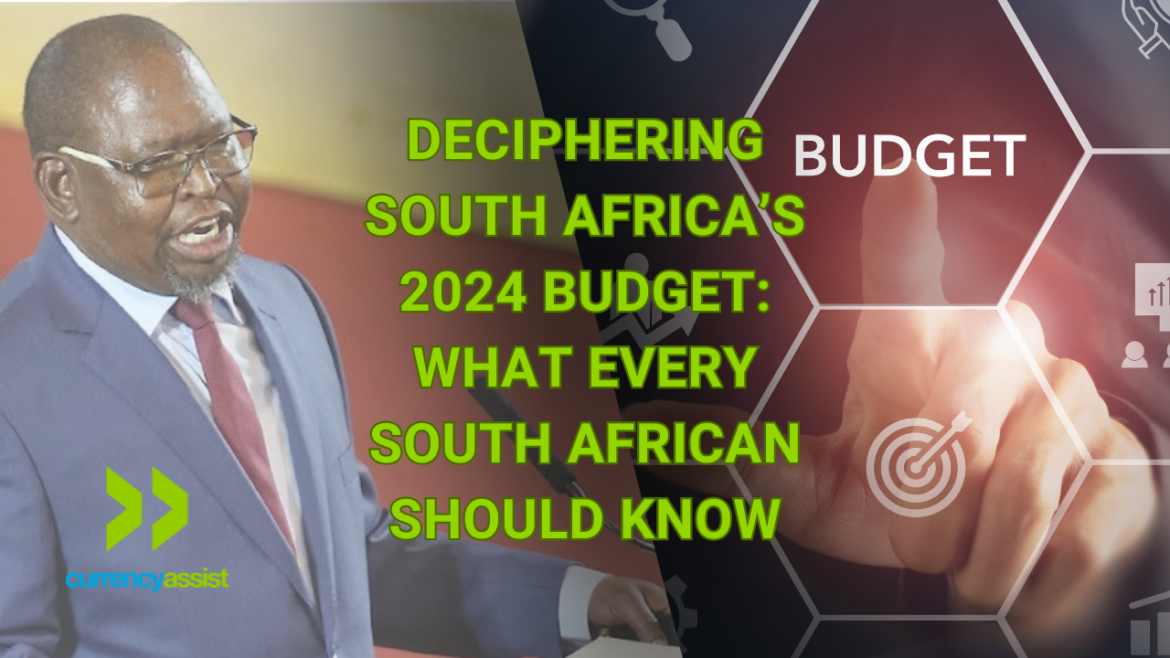As Finance Minister Enoch Godongwana unveils the 2024 budget, South Africans are eager to grasp the nuances of its impact on their lives. This year’s budget reflects a strategic blend of fiscal measures aimed at navigating economic challenges, appeasing various stakeholders, and, perhaps inevitably, positioning the ruling party ahead of impending elections. Here’s a breakdown of the key points affecting South Africans:
Tax Changes:
- While the budget avoids major income tax hikes, taxpayers will still feel the strain due to a lack of adjustments for inflation in tax brackets. This phenomenon, known as bracket creep, means higher taxes for many as incomes rise to keep pace with living costs.
- Duties on alcohol and tobacco products are set to rise, impacting consumers’ wallets and stirring debates around public health versus revenue generation.
- South Africa plans to implement a “global minimum corporate tax” targeting multinational corporations, ensuring fair taxation and curbing profit shifting.
Social Spending and Welfare:
- Key public sector workers, including teachers, doctors, nurses, and police officers, can breathe a sigh of relief as the government pledges to fully fund their salaries. Additionally, a significant boost in spending is earmarked to tackle unemployment, indicating a commitment to supporting essential workers and addressing pressing social issues.
- Social relief grants, a lifeline for many during the pandemic, receive provisional funding until 2027, providing stability for vulnerable communities in the face of economic uncertainty.
- Almost 20 million people – about a third of the population – will receive social grants by March 2027, reflecting the government’s sensitivity to the cost of living for millions of South Africans reliant on these grants.
State-Owned Enterprises (SOEs) and Infrastructure:
- Struggling SOEs like Transnet and Eskom face financial constraints, underscoring ongoing challenges in key sectors vital for economic growth and stability.
- Despite the pressures on SOEs, the budget unveils plans to invest in infrastructure, essential for stimulating economic activity and job creation.
Political Influence and Election Dynamics:
- As South Africa gears up for elections, the budget serves as a strategic tool for political manoeuvring. Spending increases are positioned as potential vote-winners, with key sectors and demographics targeted for support.
- However, the broader implications of fiscal policy transcend short-term electoral gains. Long-term fiscal sustainability requires addressing underlying economic challenges and fostering an environment conducive to growth and prosperity.
Points of Interest:
- The budget maintains corporate income tax rates at 27% and VAT rates at 15%, signalling stability in these key revenue streams.
- Personal income tax rates, rebates, and thresholds remain unchanged, with no adjustments for inflation.
- Various other tax rates and thresholds remain static, with no significant alterations to cater for inflation.
- Notable reforms include plans to introduce a “two-pot retirement system” from September 2024 and legislative changes to ensure fair taxation for multinational corporations.
Looking Ahead:
- As citizens, staying informed and engaged in ongoing dialogues surrounding fiscal policy is crucial. Beyond short-term political gains, the budget’s true impact on South Africans hinges on its ability to address economic challenges, foster growth, and ensure equitable distribution of resources.
In summary, South Africa’s 2024 budget paints a complex picture of fiscal priorities, political calculations, and economic imperatives. While certain sectors may celebrate wins, the broader trajectory of the nation’s economy will be shaped by how effectively the government navigates these challenges and charts a path towards sustainable growth and prosperity for all citizens.

